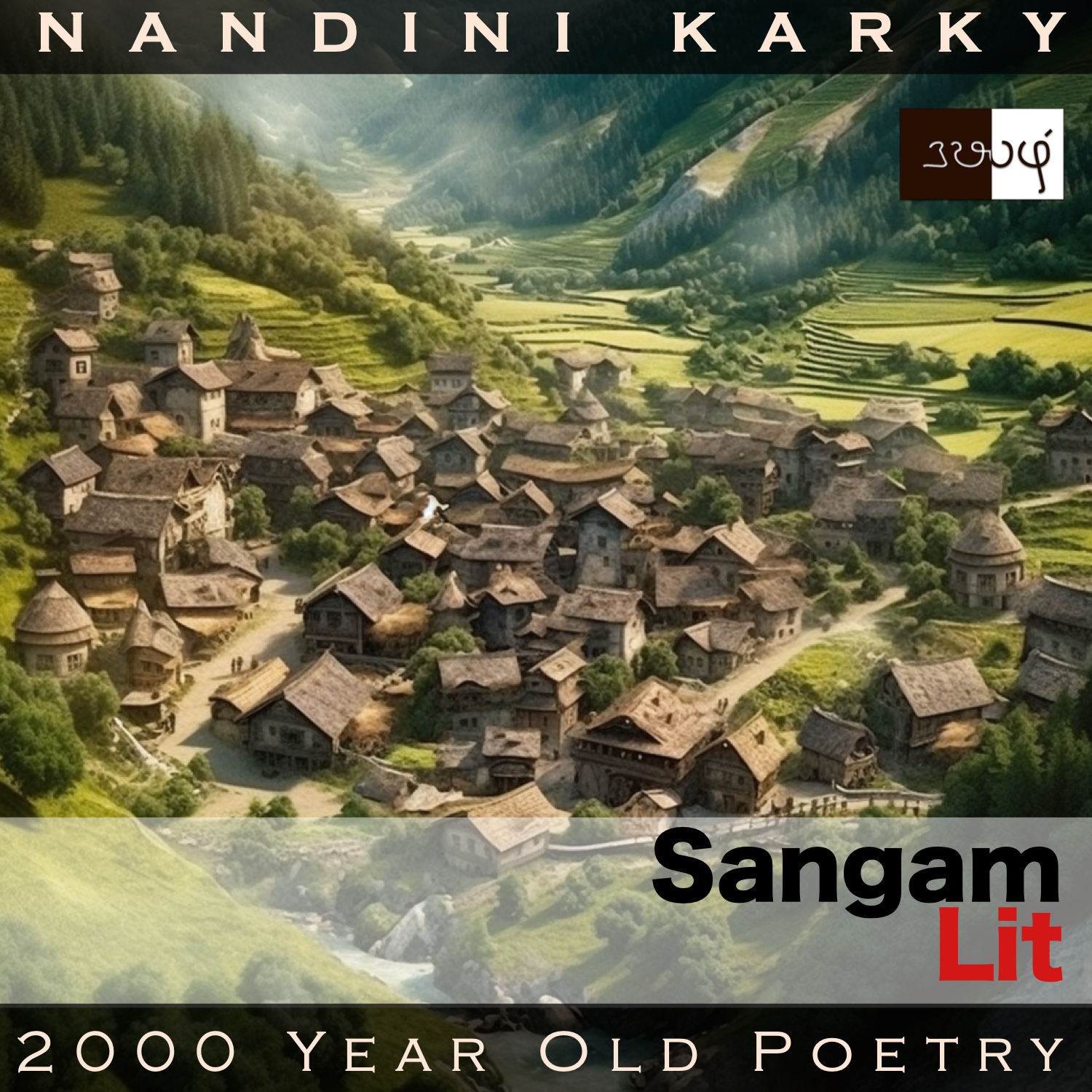Podcast: Play in new window | Download
Subscribe: Apple Podcasts | Spotify | Amazon Music | Android | iHeartRadio | Email | TuneIn | RSS | More
In this episode, we learn of the vast generosity of a king, as depicted in Sangam Literary work, Puranaanooru 148, penned about the Velir King Kandeera Koperum Nalli by the poet Vanparanar. Set in the category of ‘Paadaan Thinai’ or ‘King’s praise’, the verse puts forth an argument about why there was no need for the poet to render lies.

கறங்கு மிசை அருவிய பிறங்கு மலை நள்ளி! நின்
அசைவு இல் நோன் தாள் நசை வளன் ஏத்தி,
நாள்தொறும் நன் கலம் களிற்றொடு கொணர்ந்து,
கூடு விளங்கு வியல் நகர், பரிசில் முற்று அளிப்ப;
பீடு இல் மன்னர்ப் புகழ்ச்சி வேண்டி,
செய்யா கூறிக் கிளத்தல்
எய்யாதாகின்று, எம் சிறு செந் நாவே.
After the previous series of songs on a king’s personal matter, we are back to praises. The poet’s words can be translated as follows:
“O Nalli, whose domain is filled with glistening hills and roaring cascades above, because of the abundant wealth you have earned with your tireless efforts, day after day, you bring fine jewels and elephants to your wide town, radiant with granaries, and shower these upon surrounding supplicants. And so, there is no need for my small and honest tongue to speak of deeds never done so as to render praise to kings with no significance!”
Let’s delve into the details herein. The poet first talks about King Nalli’s land and describes it to be a hilly one with many, many cascades. Then, he talks about Nalli’s efforts that win him great wealth and this makes the king bring ornaments and elephants to his town, which seems to be brimming with granaries, the importance of which we shall discuss shortly. Bringing such huge amounts of wealth, the king doesn’t hoard them but renders unto all the people who come seeking to him. Pointing to this current situation, the poet concludes saying there was no need for his tongue to falsely praise less eminent kings for deeds never done.
Now, the poet is saying to the king that you have showered so much wealth upon me, and so, I don’t have to speak untruths about anyone else. Does this imply if the king hadn’t rendered that wealth, then the poet would have spoken those falsehoods to someone else? This makes me wonder if all these praises of kings must be taken as truth or an instrument of the poets’ livelihood. Whatever the answer to that may be, we can still cherish the gift of intricate details about the life of ancient people within these verses. Even in this one, we see reference to granaries in the king’s town. This is a clear indicator of a settled population with agricultural centres. When granaries are built and food is aplenty, then specialised arts and crafts would have no doubt flourished. Also, another interesting pattern I’m noticing is how so many of these kings are rulers of hilly regions. Most of the Velir Kings we have seen so far are praised for their soaring hills and roaring cascades. Could there be any deeper reason for this pattern? And so, we see how even a mere song of praise for a ruler leaves us pondering about the past!




Share your thoughts...